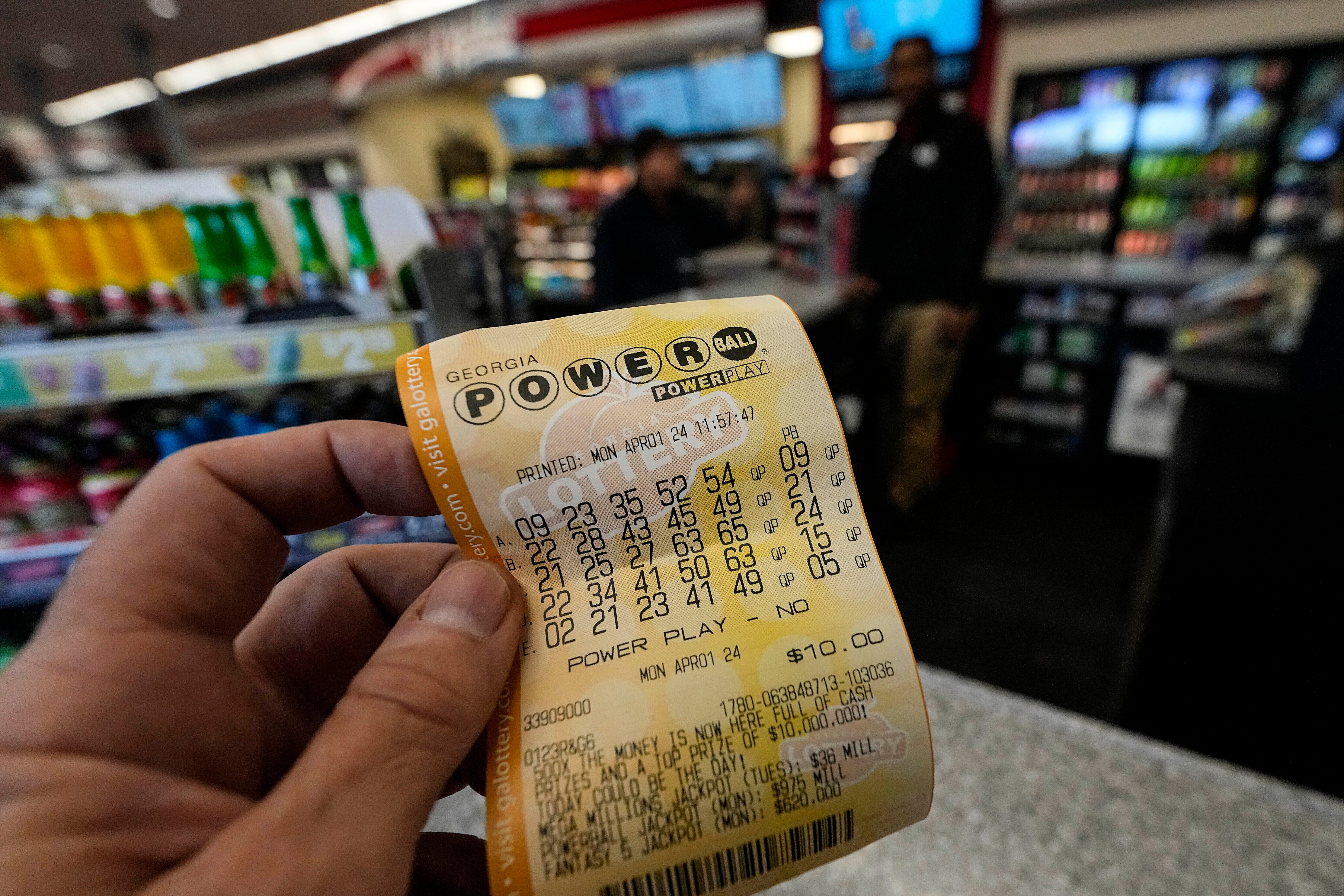Powerball jackpot reaches $1.23B as long odds mean lots of losing, just as designed
Powerball is about to match a record for lottery drawings with a stretch of more than three months without a jackpot winner

Your support helps us to tell the story
From reproductive rights to climate change to Big Tech, The Independent is on the ground when the story is developing. Whether it's investigating the financials of Elon Musk's pro-Trump PAC or producing our latest documentary, 'The A Word', which shines a light on the American women fighting for reproductive rights, we know how important it is to parse out the facts from the messaging.
At such a critical moment in US history, we need reporters on the ground. Your donation allows us to keep sending journalists to speak to both sides of the story.
The Independent is trusted by Americans across the entire political spectrum. And unlike many other quality news outlets, we choose not to lock Americans out of our reporting and analysis with paywalls. We believe quality journalism should be available to everyone, paid for by those who can afford it.
Your support makes all the difference.Powerball will match a record for lottery drawings Saturday night with a stretch of more than three months without a jackpot winner.
It's that string of futility that has enabled Powerball's top prize to reach $1.23 billion, the 8th largest in U.S. lottery history. And it's a sign that the game is operating exactly as designed, with long odds creating a massive jackpot that entices people to drop $2 on a ticket.
It means no one should ever expect to match all six numbers and hit it rich, though it's likely someone eventually will.
ABOUT THOSE ODDS
The last time someone won the Powerball jackpot was on New Year's Day, when a player in Michigan hit an $842.4 million jackpot.
Since then, there have been 40 consecutive drawings without a jackpot winner. The 41st on Saturday night will match the record for most drawings, set twice before in 2022 and 2021.
The winless streak isn't a fluke. Lottery officials set the odds at 1 in 292.2 million in hopes that jackpots will roll over with each of the three weekly drawings until the top prize becomes so enormous that more people take notice and play.
The odds used to be significantly better, at 1 in 175 million, but were made tougher in 2015 to create the humongous jackpots. Lottery officials at that time also made it easier to win smaller prizes, and they note that the overall odds of winning something are about 1 in 25.
MORE ABOUT THOSE ODDS
It's hard to envision what odds of 1 in 292.2 million mean.
One way is to think of the roughly 322 million people who live in spots where they can buy Powerball tickets — five states don't participate. If each person bought one ticket, you would expect one person to win and hundreds of millions of people to lose.
Put another way, the odds of winning the jackpot are a little worse than flipping a coin and getting heads 28 straight times, according to Andrew Swift, a University of Nebraska-Omaha mathematics professor.
A BIT MORE ABOUT THOSE ODDS
Of all the people who bought lottery tickets for the last drawing Wednesday night, only 22.6% of the 292.2 million possible number combinations were covered, according to the Multi-State Lottery Association. That means that 77.4% of number combinations were not covered, and it's an indication of why people so rarely win a jackpot.
Remember, the odds of an individual ticket winning never changes, but as more people play, more number combinations will be covered and the odds of someone winning rise.
And as bad as Powerball odds are, they're a little better than Mega Millions, the other nearly national lottery game, which has jackpot odds of 1 in 302.6 million. And, to be fair, someone won a $1.13 billion Mega Millions prize last month.
THE PAYOFF, AND WHY IT'S SMALLER THAN YOU THINK
Without a doubt, the Powerball jackpot is an incredible amount of money, but it's also less than you might expect.
That's because while officials tout the $1.23 billion prize, that is for a sole winner who chooses to be paid through an annuity, with an immediate payment and then annual payments over 29 years. Winners almost always opt for cash, which for Saturday night's drawing would be an estimated $595.1 million.
Regardless of the payment option, a big chunk of the winnings would go toward taxes, though that amount would vary depending on winners' other assets and whether their state taxes lottery winnings. Just note that the top federal tax income tax rate is 37%, meaning a lot of the winnings would go to Washington.